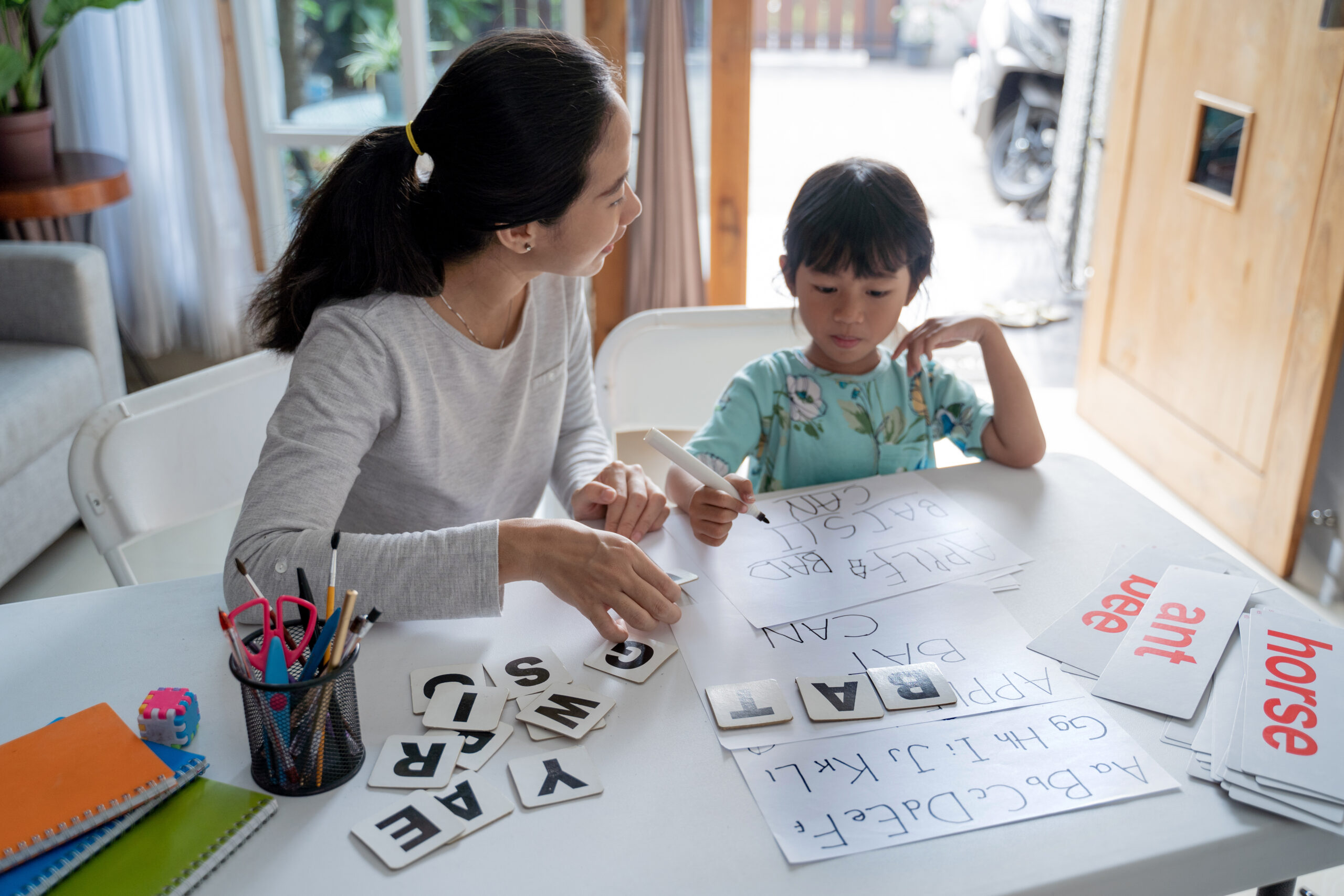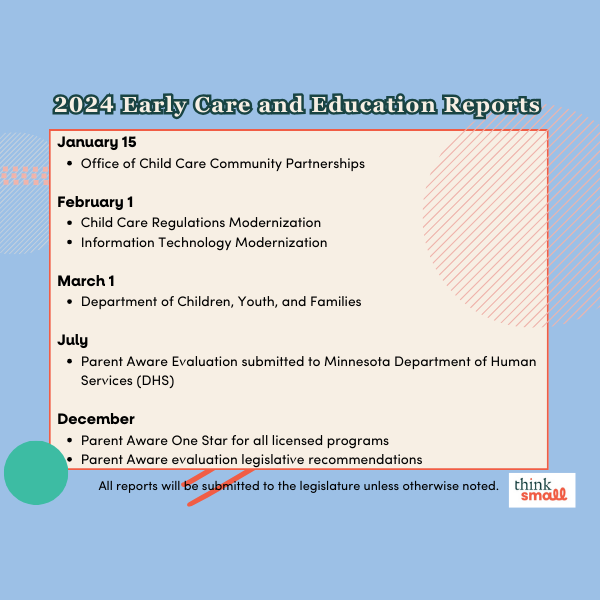It is no secret to those who work in or rely on child care that the field struggled even before the pandemic. The challenge of covering the actual costs of care (which continue to rise) with what parents can afford to pay has been a long-standing problem for both Licensed Family Child Care homes and Child Care Centers. Programs are now facing even deeper challenges as wages and benefits in other sectors have risen, while child care wages and benefits have struggled to see increases.
The solution must be a large-scale public investment with sustainable and dedicated funds for the workforce, particularly in compensation. While the 2021 American Rescue Plan (ARP) provided pandemic relief funds intended to stabilize the system, those funds are ending, so new action must be taken.

Luckily, the Minnesota Legislature had a blueprint for such action in the “Great Start Task Force for All Minnesota Children” report released in February 2023. This Task Force was charged with creating recommendations to achieve three key goals:
- Creating a system where family costs for early care and education are affordable.
- Ensuring that a child’s access to high-quality early care and education is not determined by the child’s race, family income, or zip code.
- Ensuring Minnesota’s early childhood educators are qualified, diverse, supported, and equitably compensated regardless of setting.This update focuses on the legislative outcomes that will advance the third goal through increased compensation, access to training and education, and system support.
This update focuses on the legislative outcomes that will advance the third goal through increased compensation, access to training and education, and system support.
COMPENSATION
The 2023 Legislature established new “Great Start Compensation Support payments” ($316.1 million for 2024-25; $259.7 million for 2026-27). This funding will operate similarly to the current Stabilization Grants in terms of process and program eligibility, but the funds will be explicitly meant for compensation (some flexibility in this definition will be given for Licensed Family Child Care). The Legislature also allocated $42.5 million to transition from stabilization grants to support payments.
The Legislature allocated $4.284 million in 2024-2025 and $900,000 per year after that for R.E.E.T.A.I.N. bonuses that reward early childhood educators who have demonstrated a commitment to the field by continuing their education and professional development.
Finally, the Legislature has directed the commissioner of DHS, in consultation with the commissioners of employment and economic development and education, the Children’s Cabinet, and relevant stakeholders, a process for recognizing comparable competencies for use in a wage scale and a child care and early education professional wage scale that:
- implements the wage scale recommendations of the Great Start for All Minnesota Children Task Force.
- provides recommended wages equivalent to elementary school educators with similar credentials and experience.
- provides recommended levels of compensation and benefits, such as professional development stipends, health care benefits, and retirement benefits, that vary based on child care and early education professional roles and qualifications.
- incorporates, to the extent feasible, qualifications inclusive of competencies attained through experience, training, and educational attainment.
TRAINING AND EDUCATION
The Legislature allocated $695,000 per year for ongoing T.E.A.C.H. Early Childhood Minnesota® Scholarships that help early childhood educators increase their levels of education, compensation, and commitment to the field by earning college credits and degrees.
A new early childhood registered apprenticeship grant program was also established to provide employment-based training and mentoring opportunities for early childhood educators ($3.175 million in 2024-25; $1 million per year after that).
A new grant program for postsecondary institutions to incorporate the Early Learning Knowledge and Competency Framework into their early childhood curricula was established ($250,000 per year)
The Grow Your Own early childhood educators grant program was approved ($2.5 million per year in 2024-25; $500,000 per year thereafter).
Finally, the Legislature approved $475,000 in one-time funding to develop a transparent pathway for current CDA recipients to be awarded academic credit that aligns with related academic certificates, diplomas, and degree programs.
SYSTEM SUPPORT
Two programs that began in response to concerns about the loss of child care programs and early childhood educators will continue with state funding: The Wayfinder program—the state’s one-stop navigation network for starting and growing child care programs ($2.92 million per year) and Empower to Educate which supports economically challenged individuals to being a career in child care ($1.995 million per year).
A new program to award grants for planning, establishing, expanding, improving, or operating family child care shared services alliances was established. These networks of eligible entities share services to reduce costs and achieve efficiency. ($500,000 per year).
A technology grant program to support eligible child care providers with technology intended to improve the providers’ business practices was also established ($300,000 per year).
These initiatives and increased CCAP and Early Learning Scholarship resources for parents to access child care programs set Minnesota more fully on the path toward the vision expressed in the Great Start Task Force report. There is much more to do, but these are significant gains for the field and equitably supporting our children and their families at this critical time.
Transforming Minnesota’s ECE Workforce is a public-private team representing state agency staff, non-profit ECE organizations, Higher Education Institutions, and other community agencies focused on building and sustaining a diverse, qualified, well-supported, and fairly compensated Early Childhood Workforce.
By Ann McCully and Nancy Jost, Co-Chairs of Transforming Minnesota’s ECE Workforce







